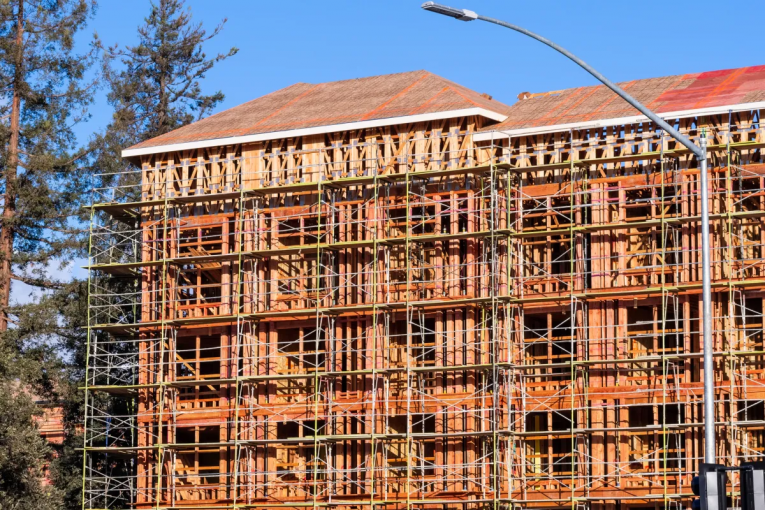

By David M. Greenwald
Executive Editor
As noted in yesterday’s column, last week, the Chronicle blasted the supervisors for having “lost their minds on housing.”
The Chronicle writes: “What does San Francisco need even more than dense, affordable housing near jobs and transit? It needs a Board of Supervisors that won’t sabotage any and seemingly all earnest attempts to deal with this city’s housing crisis.”
At issue was the Supervisors 8-3 vote to reject the EIR of a plan to build a new 495-unit mixed-income tower in the South of Market area near a BART stop over seemingly preposterous concerns of gentrification.
Wrote the Chronicle editorial board: “Was the site for this proposed development — which would have included over 100 units of affordable housing — a single-room occupancy, low-income or senior housing complex? Nope. It was a valet parking lot for a luxury department store.”
Senator Scott Wiener had the classic quote here.
“When San Francisco acts like this, it sends a very negative message to the rest of the region,” Senator Wiener told the Chronicle. “We have been pushing other cities to do their share, to be better, so when San Francisco does something like this, it puts the proverbial turd in the punch bowl.”
As Dan Walters pointed out in a recent column, “For years, California politicians have talked about cracking down on local governments that arbitrarily reject much-needed housing projects and have even passed some laws to that  effect.”
effect.”
But like others, he points out that even as the housing crisis has worsened and threatened to derail the state’s economy – among other problems, “there has been little or no real effort to force the issue, and local officials continue to cave in to local anti-housing sentiment.”
Walters calls the recent vote in San Francisco merely the latest but “especially blatant example.”
“This is the kind of project we’ve been asking for, which is a lot of units built for families right by transit,” Supervisor Matt Haney told the San Francisco Chronicle. “For God’s sake, it’s a Nordstrom valet lot.”
For Senator Wiener, he sees this kind of rejection as being in violation of the Housing Accountability Act (HAA) which was supposed to make it difficult for local government to jrect proposals that otherwise meet zoning laws already on the books.
“The point of the HAA is not to change the rules in the middle of the game,” Wiener said. “If a project complies with the existing rules in terms of density and height, you can’t reject the project unless (there’s a) specific health and safety problem, which there is not in this case.”
Walters now believes that this could be a test case for the HCD but as we know already from previous columns, this would appear to be a long shot.
It was only three weeks ago, the Chronicle Editorial Board lamented, “For a brief and shining moment last month, it appeared as if California was finally ready to do the tough and politically charged work of tackling its housing crisis.”
“This time was supposed to be different,” they argue. “Over the past several years, California lawmakers, led by state Sen. Scott Wiener of San Francisco, have put teeth into the process. Now once state officials certify a city’s housing element, that plan automatically overrides existing zoning laws, becoming the new local rules.”
But it wasn’t and it hasn’t.
The HCD has according to their editorial simply not enforced the law in making sure that housing elements are in compliance. So why would we expect them to enforce the law with respect to these kinds of projects that they have normally left in the hands of local land use authority?
As Senator Wiener tweeted a few weeks ago, “We’ve significantly strengthened state housing laws to ensure cities plan for & approve more housing. Unfortunately our state housing dept is off to a weak start in enforcing the law. This has to change & as Senate Housing Chair that’s a priority for me.”
Walters writes, “State housing director Gustavo Velasquez told the Chronicle that his agency’s attorneys are examining whether the Board of Supervisors violated the HAA or the California Environmental Quality Act. CEQA comes into play because one of the rationales supervisors offered for stalling the project is that its environmental impact report is faulty.”
But even if the state intervenes – which again seems unlikely, Walters notes, “the impact would not be instantaneous. Velasquez would send the city a warning letter and if that doesn’t work, the state would file suit.”
The problem is: “it could take years for the issue to wind through the courts, meaning the project’s costs would continue to mount, perhaps too high for it to continue. That’s what often happens when local officials go into stall mode.”
Still after years of lawsuits filed to stop housing, it would be interesting to follow one that actually pushes for housing.


My message to S.F. is more housing fewer needles. You may be worried about gentrification but you should be more worried about used hypodermic needles left in piles on the sidewalk. Haven’t been back since I came across that nightmare.
Seemingly preposterous
It will go down in history
Maybe SW should tend to his own city, and stop pushing other cities. This isn’t going to end well, or end at all.
“When it rains it pours and it did and it does and you’re cute. Morton Salt”
Does the Morton Salt girl symbolize white supremacy in 2021?